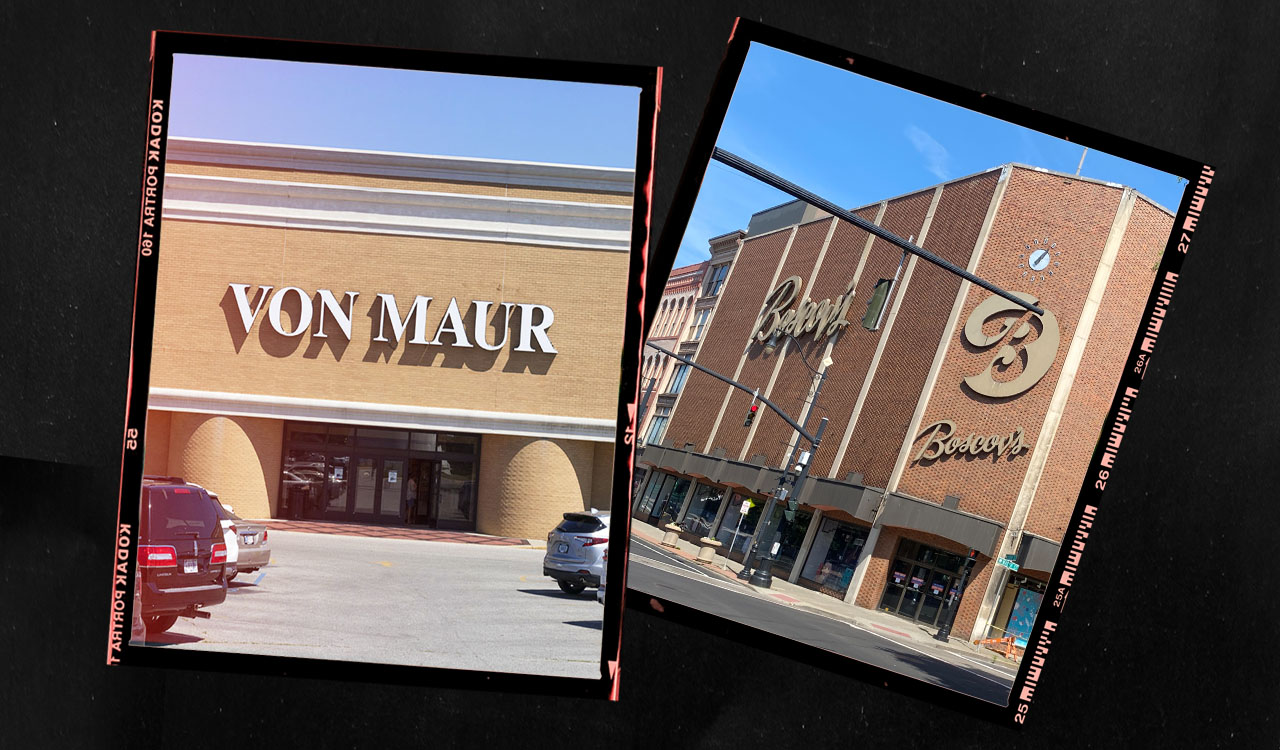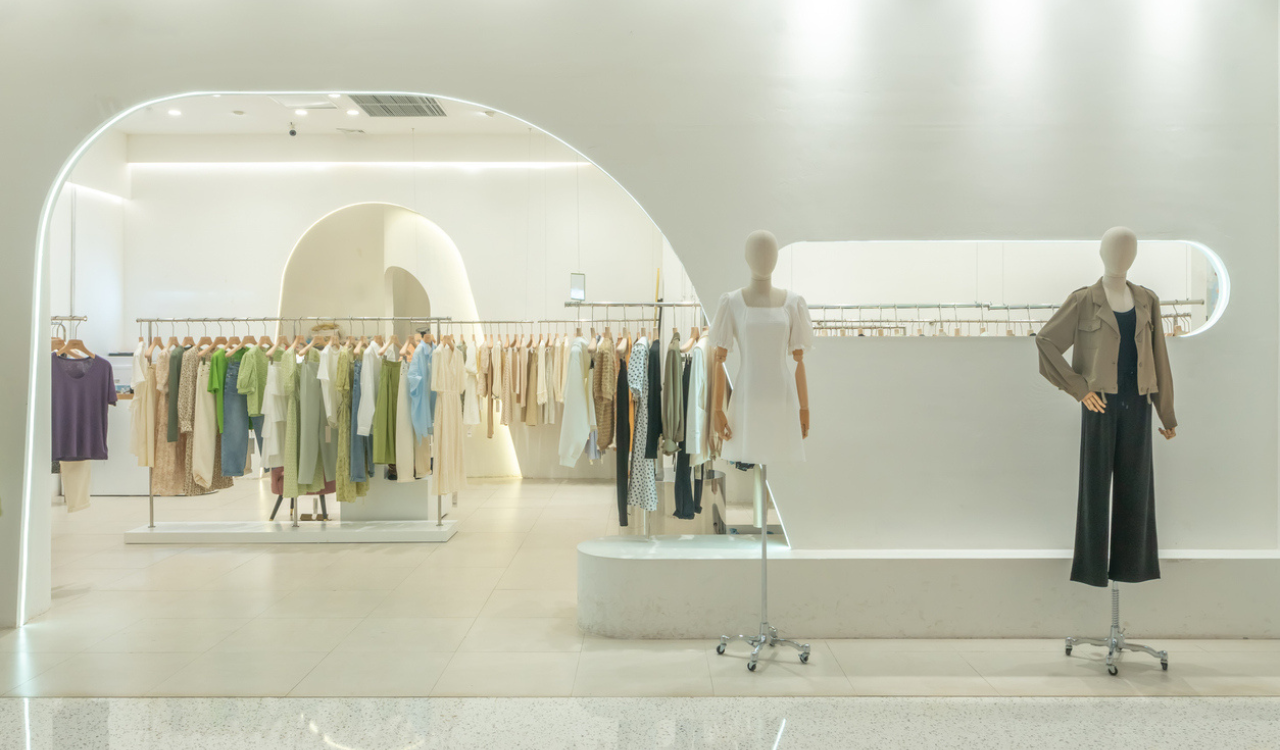This file is licensed under the Creative Commons Attribution-Share Alike 4.0 International license.
“It’s not exactly a big fat secret that department stores are becoming an endangered species. Once king of the retail world, their market share has been reduced to at best 2 percent according to recent estimates. With a struggling Macy’s on top of the food chain, the rest of the channel has been reduced to a precious few: Dillard’s, Belk and depending on how you define things Nordstrom, Bloomingdale’s and maybe Saks and Neiman’s. Not exactly a robust bunch.
When you get to know Boscov’s, you discover that we are more than a department store. Family matters to us and if we’re in your community, you can consider us family. Our wish is to help make each and every town we are in even better. Whether we’re sponsoring a blood drive, hosting our famous Friends Helping Friends event, or offering story time with Mrs. Claus we want to enrich the communities we are part of.
Hidden Gems
But tucked into a corner of the department store world are two niche players who are defying the odds. While both are privately owned and we really don’t see hard numbers, by all accounts they seem to be prospering, even expanding their store counts in the face of ongoing closures by some of the bigger players. Boscov’s and Von Mauer — not exactly household names in much of the country where they don’t have stores — are the little department stores that could. And they seem to be doing it the old-fashioned way: they are actual department stores: that is, they sell an assortment of national brands across a broad number of product categories with an emphasis on fashion, beauty and footwear in large footprint layouts. Just as Dillard’s has beaten the odds with a traditional approach to the genre that eschews all the trendy bells and whistles, these two chains pretty much stick to their roots and refrain from overstepping their boundaries — physical or strategically.
Von Maur
With the opening of its first store in North Dakota this month in Fargo, Davenport, IA-based Van Maur now has 39 locations, including another recently opened store in Pittsburgh. Its territorial footprint is centered in the upper Midwest but stretches as far south as Georgia and Alabama and as far east as New York. The company traces its roots back to 1872 and the opening of a small 20-by-50-foot location in Davenport, about an hour east of Iowa City, under the JHC Petersen’s Sons Co. name. In 1937 the Von Maur family assumed full ownership of the company, but it wasn’t until 1989 that it took on its current name. Its expansion eventually took it to its current tally of 17 states, as well as ecommerce. The most recent estimate for its annual revenues was in 2019 when outsiders pegged it at about $1 billion in sales. The company does not confirm that number and has remained fiercely private, declining an interview for this story.
According to a report in Chain Store Age on the opening of the Fargo store in May, Von Maur also announced plans to undertake extensive renovations of its existing locations during the next several years, investing more than $100 million. “As Von Maur has grown, new stores have evolved to reflect the trends present in residential design,” Jim von Maur, president of Von Maur and a fourth-generation family member, said in May. “It is important that we reinvest in our existing locations and bring those same updates to the customers that have been the bedrock of our success.”
How does Von Maur do it? Von Maur frequently cites a Newsweek report that ranks it as “America’s Best Department Store” for three consecutive years. On its website, the company says “The strength of the Von Maur brand lies in our enjoyable and unique shopping experience. The backbone of this experience is our wide selection of brand-name merchandise, open and attractive store design, amenities that enhance the customer experience and our commitment to excellent customer service.” Indeed, a recent visit to its store in Atlanta which opened in 2012 in the Perimeter Mall replacing a closed Bloomingdale’s location, confirms a classic approach to merchandising. It has a relaxed, almost elegant layout with wide aisles, products displayed on formal fixturing and no signs of merchandise stacked and racked high.
You want to say it looks old-fashioned reminding you of department stores of days gone by, but that’s not entirely accurate: it presents an atmosphere where you just want to shop and not get out of the store as fast as possible as is the case with many retailers today. Women’s apparel is the centerpiece of the store, which also features menswear, beauty and footwear but only a scattering of home, mostly some décor items. Prices are closer to Nordstrom than Macy’s but moderate is probably the best way to describe its assortment.
Boscov’s
Another family-owned company, Boscov’s — like Von Maur — is expanding as the competition contracts. It announced in March that it would be opening a new location at the Mall at Greece Ridge in Greece, NY (near Rochester) this fall, occupying a 175,000-square-foot space that once included a Burlington outlet which relocated nearby to a former Bed Bath & Beyond store. The mall recently lost its Macy’s anchor.
That should take Boscov’s store count to 52, with the largest number, 26, in its home state of Pennsylvania. The rest are elsewhere in New York, as well as in New Jersey, Maryland, Delaware, Connecticut, Ohio, West Virginia and Rhode Island.
It also traces its origins back, to 1918 when Russian immigrant Solomon Boscov opened his first store in Reading, PA and then in 1982 Boscov’s gradually expanded from there. It bills itself as “America’s largest family-owned department store,” a claim that appears to be undisputed. Its annual revenues are estimated to be in the $1.2 to $1.5 billion range of which ecommerce is approximately 10 percent, according to outside estimates.
In announcing the latest store opening, CEO Jim Boscov told local media outlet WHAM, “We push our boundary a little bit at a time because it’s very helpful to have people in the community say, ‘Oh, I know that store, I’ve shopped there, you’re going to like it.'” He said this made more sense than a haphazard expansion plan. “And that’s a lot better than hopscotching across the country and plopping down in Chicago and they go, ‘Boscov’s, is that chocolate? Is that coffee? What exactly is that?'”
Boscov is the nephew of Albert Boscov who ran the company from 1969 to 2015 and is a legend in some circles for creating a distinct culture for the company that is heavily geared towards the communities it serves. On its website, it emphasizes, “When you get to know Boscov’s you discover that we are more than a department store. Family matters to us and if we’re in your community, you can consider us family. Our wish is to help make each and every town we are in even better. Whether we’re sponsoring a blood drive, hosting our famous Friends Helping Friends event, or offering story time with Mrs. Claus we want to enrich the communities we are part of. What is Boscov’s? We are the place where you can drop off donations for the food drive. We are where your daughter gets her first Girl Scouts uniform. We are the store around the corner, and we will continue to be there!”
From a merchandising perspective, Boscov’s is more promotional than Von Maur, tilting closer to Penney’s and Kohl’s though it does carry some upscale brands like Vera Wang, Vince Camuto and Versace and Donna Karan, the latter two brands only in fragrances and beauty. While apparel is the largest classification it does have a full home furnishings department with an emphasis on soft home and housewares.
Two of a Kind
Despite their merchandising differences Von Maur and Boscov share much in common, from private family ownership, mall-based locations (although not usually in A centers) and a focus on in-store versus online. Curiously, Belk and Nordstrom (soon) are also private, though the former is owned by equity players and the latter will still be controlled by the family with a heavy investment from a Mexican retail chain. The Saks-Neiman Marcus mash-up is also now private and owned by investors. Dillard’s is public but is controlled by the founding family’s next generation, leaving Macy’s as the only department store publicly owned and no longer in family hands. While outside investors have moved to try to take over and push it to be private, Macy’s management has resisted, insisting it has a plan to be more successful. If you want to count JCPenney and Kohl’s in the department store channel — some do and some don’t — the former is also now private — controlled by the shopping center companies that house most of their stores — while Kohl’s is public but facing many of the same assaults from outside investors as Macy’s.
Without seeing the Von Maur or Boscov’s balance sheets we’ll never know for sure how successful — or profitable — either is. One doubts there is much debt on either of their books and with no need to make quarterly numbers each can run their businesses for the longer term. Is that the secret to a successful department store chain circa 2025? We know what doesn’t work — Macy’s, Penney, Belk and Neiman’s have all filed for bankruptcy over the years — so maybe these two are onto something. Is the department store model dead? Maybe it’s just hiding in Davenport, IA and Reading, PA.





